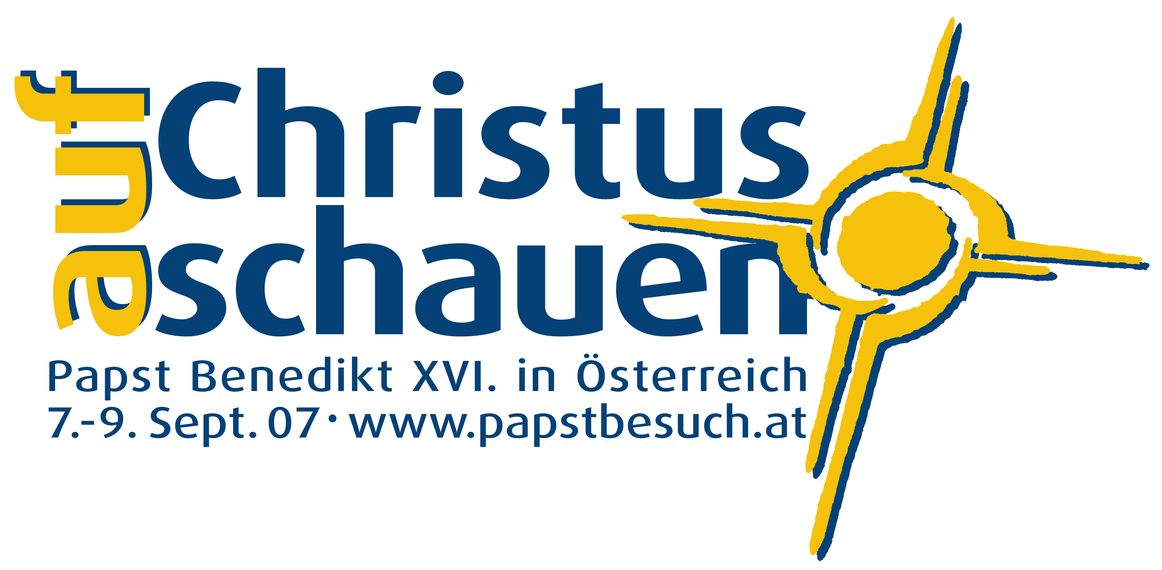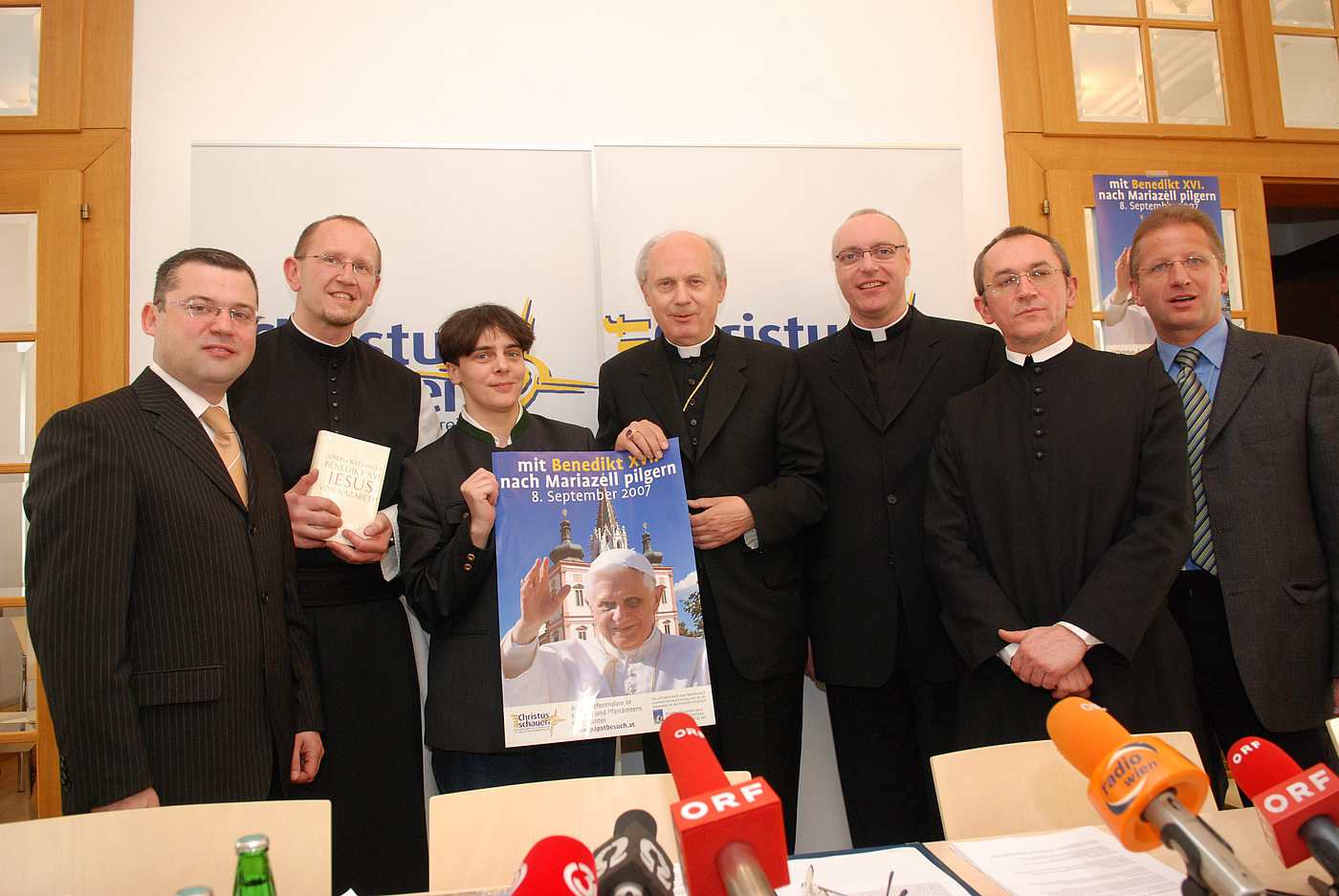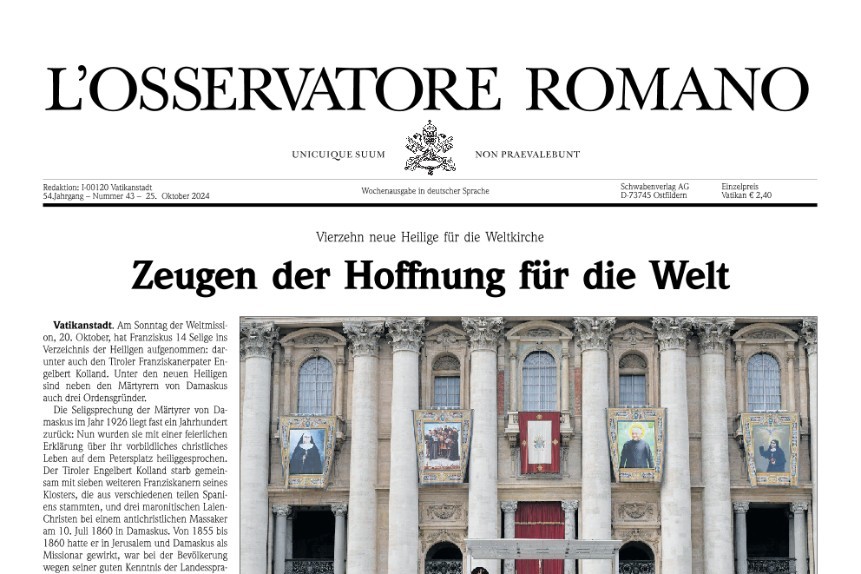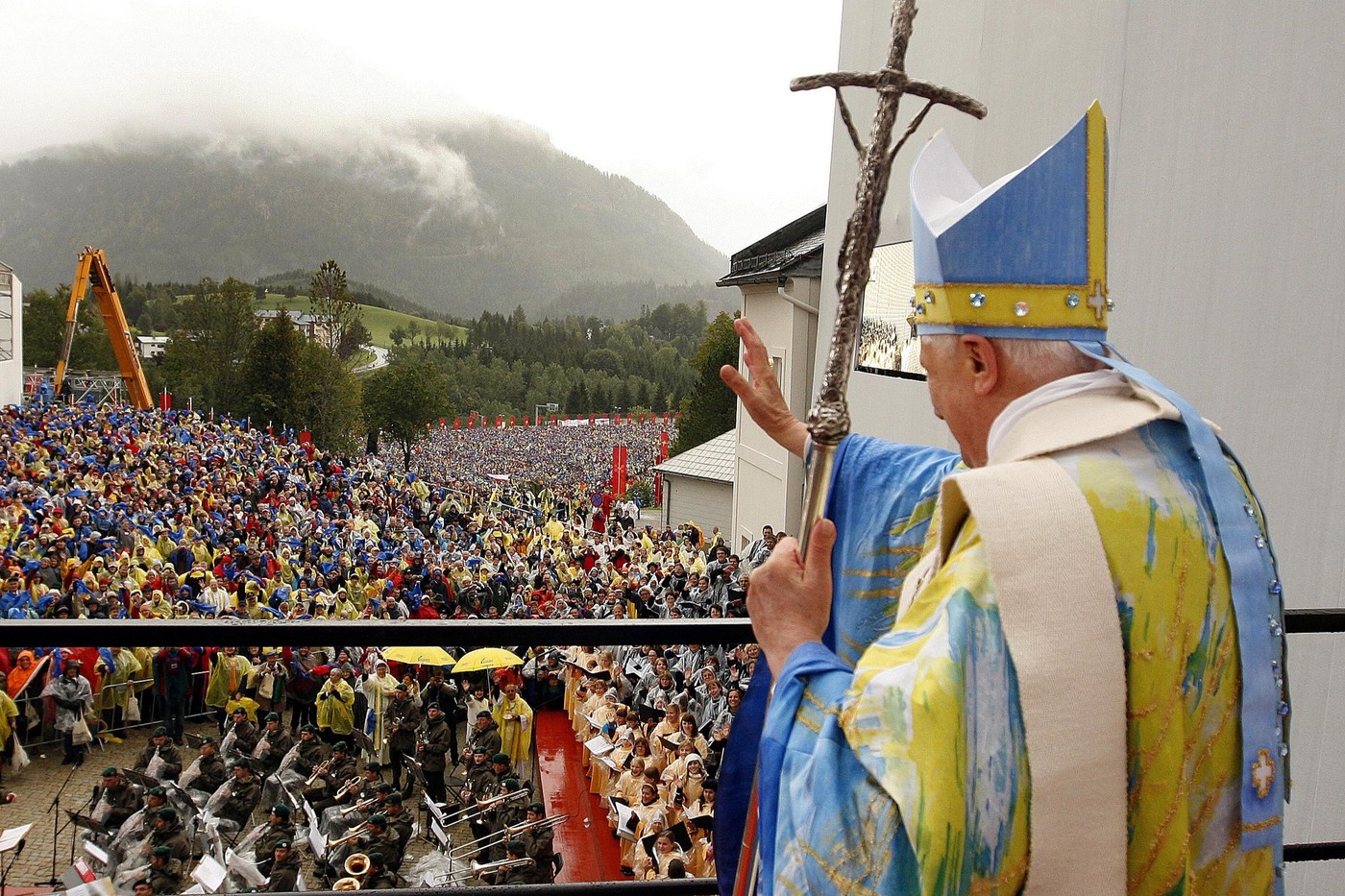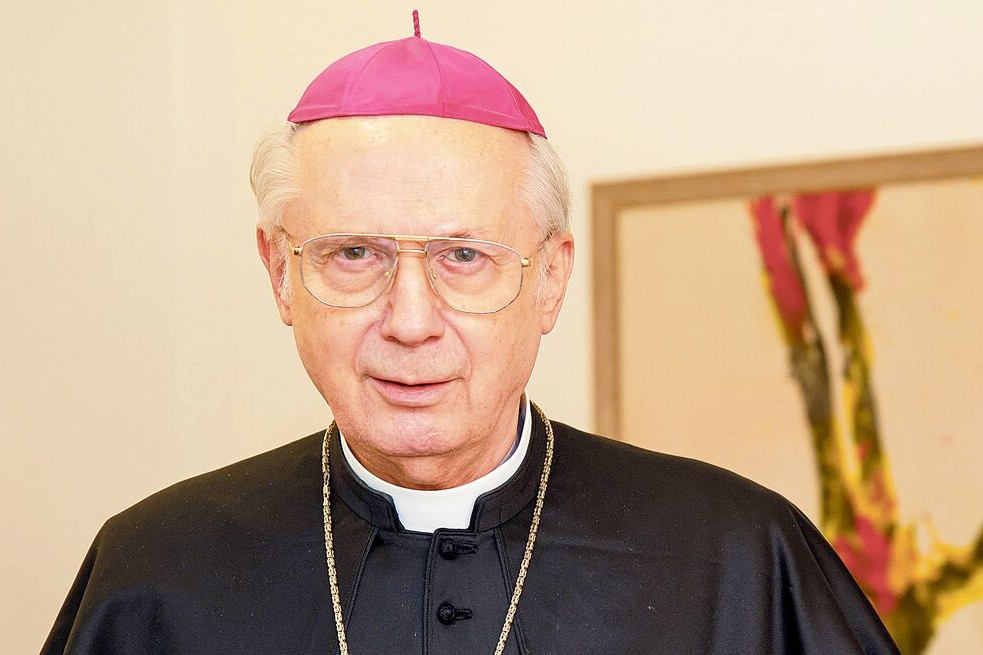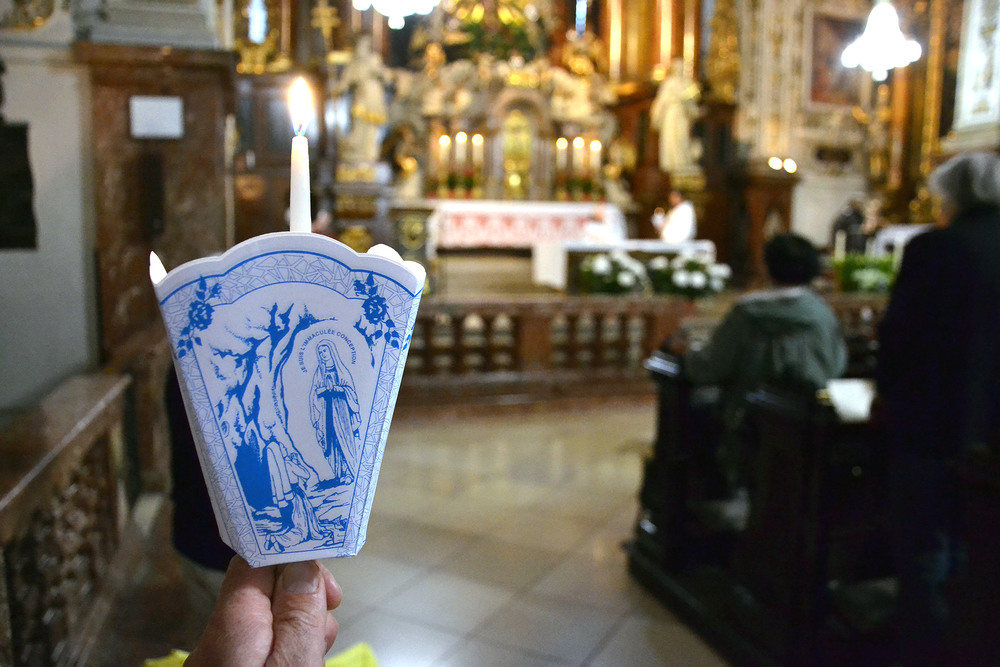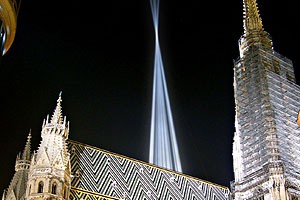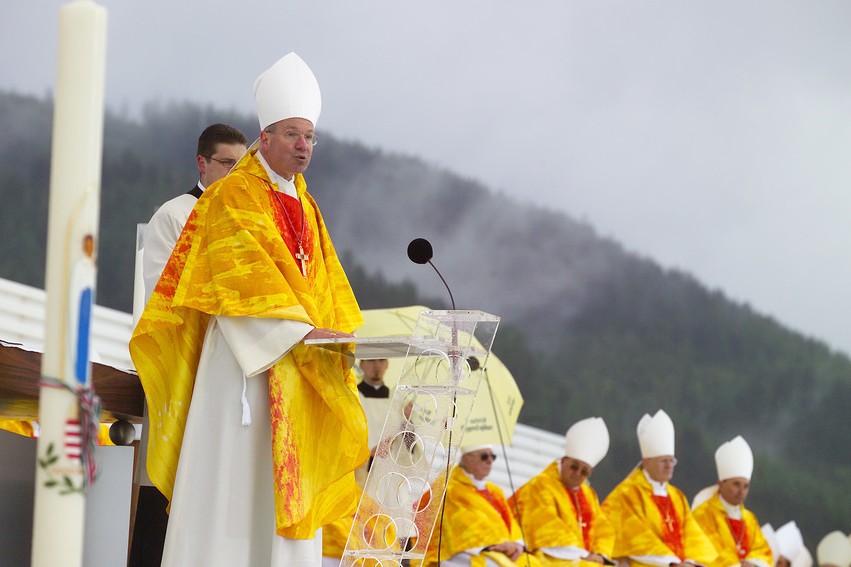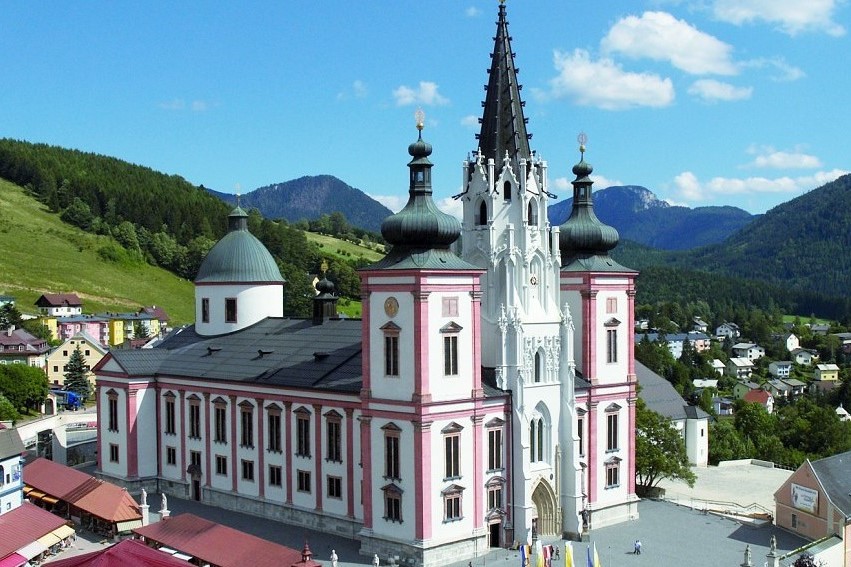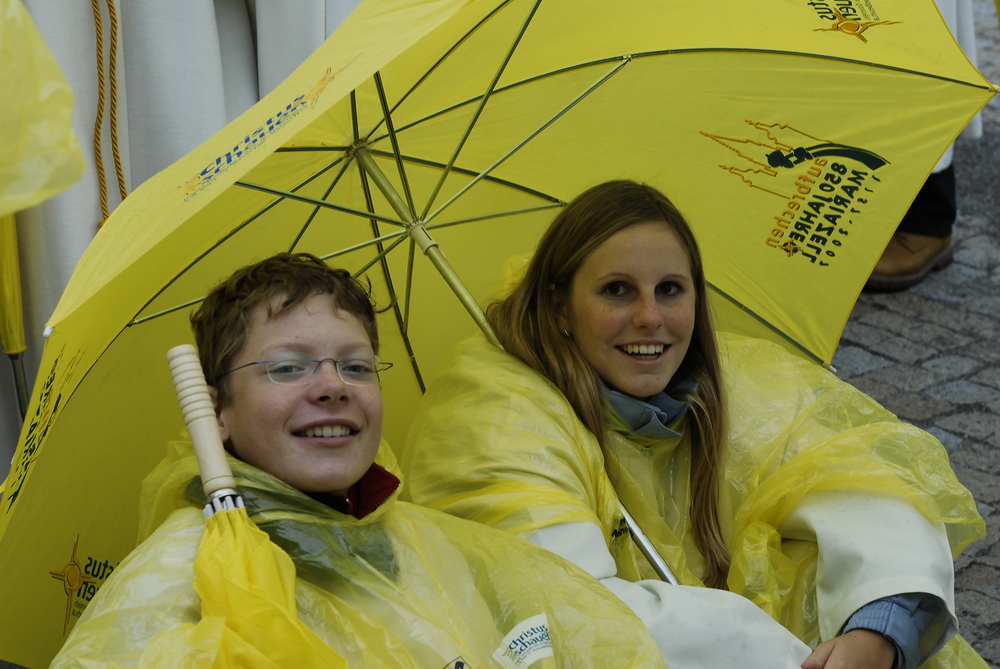Papst Benedikt XVI. besucht Österreich
Programm der Apostolischen Reise Seiner Heiligkeit Benedikts XVI. nach Österreich aus Anlass des 850-Jahr-Jubiläums des Heiligtums von Mariazell
(7. bis 9. September 2007)
Freitag, 7. September 2007
| 09.30 Uhr |
Abflug von Rom-Ciampino nach Wien-Schwechat |
| 11.15 Uhr |
Ankunft auf dem internationalen Flughafen Wien-Schwechat - Begrüßungszeremonie auf dem Flughafen (Ansprache des Heiligen Vaters) |
| 12.00 Uhr |
Autofahrt vom Flughafen zum Platz Am Hof, auf der Fahrtroute Umsteigen in das "Papamobil" |
| 12.45 Uhr |
Ankunft auf dem Platz Am Hof. Gebet vor der Mariensäule auf dem Platz Am Hof (Grußworte des Heiligen Vaters) |
| 13.30 Uhr |
Fahrt im "Papamobil" zum Judenplatz |
| 13.35 Uhr |
Stilles Gedenken vor dem Mahnmal für die österreichischen Opfer der Shoah auf dem Judenplatz |
| 13.40 Uhr |
Fahrt im "Papamobil" vom Judenplatz zur Apostolischen Nuntiatur |
| 13.50 Uhr |
Ankunft in der Apostolischen Nuntiatur |
| 17.15 Uhr |
Autofahrt zur Hofburg |
| 17.30 Uhr |
Ankunft in der Hofburg Höflichkeitsbesuch beim Bundespräsidenten. Begegnung mit Vertretern des öffentlichen Lebens und des Diplomatischen Corps (Ansprache des Heiligen Vaters) |
| 18.45 Uhr |
Autofahrt von der Hofburg zur Apostolischen Nuntiatur |
| 19.00 Uhr | Ankunft in der Apostolischen Nuntiatur |
Samstag, 8. September 2007
| 08.00 Uhr |
Autofahrt von der Apostolischen Nuntiatur zum Heldenplatz |
| 08.15 Uhr |
Abflug mit Hubschrauber vom Heldenplatz nach Mariazell |
| 09.15 Uhr |
Ankunft auf dem Flugfeld Mariazell |
| 09.25 Uhr |
Fahrt im "Papamobil" zur Basilika |
| 09.45 Uhr |
Ankunft vor der Basilika |
| 10.30 Uhr |
Heilige Messe aus Anlass des 850-Jahr-Jubiläums der Gründung des Heiligtums von Mariazell auf dem Vorplatz der Basilika (Predigt des Heiligen Vaters) |
| 12.30 Uhr |
Einzug in die Sakristei der Basilika |
| 13.30 Uhr |
Mittagessen mit den Mitgliedern der Österreichischen Bischofskonferenz und mit den Kardinälen und Bischöfen des päpstlichen Gefolges im Geistlichen Haus Mariazell |
| 16.40 Uhr |
Gang zu Fuß vom Geistlichen Haus zur Basilika |
| 16.45 Uhr |
Marianische Vesper mit Priestern, Ordensleuten, Diakonen und Seminaristen in der Basilika von Mariazell (Ansprache des Heiligen Vaters) |
| 18.00 Uhr |
Fahrt im "Papamobil" zum Flugfeld Mariazell |
| 18.20 Uhr |
Ankunft auf dem Flugfeld |
| 18.30 Uhr |
Abflug im Hubschrauber nach Wien |
| 19.30 Uhr |
Ankunft auf dem Heldenplatz und Autofahrt zur Apostolischen Nuntiatur |
| 19.50 Uhr |
Ankunft in der Apostolischen Nuntiatur |
Sonntag, 9. September 2007
| 09.15 Uhr |
Autofahrt von der Apostolischen Nuntiatur zum Erzbischöflichen Palais |
| 09.30 Uhr |
Ankunft im Erzbischöflichen Palais |
| 09.45 Uhr |
Prozession vom Erzbischöflichen Palais zum Stephansplatz |
| 10.00 Uhr |
Heilige Messe im Stephansdom (Predigt des Heiligen Vaters) |
| 12.00 Uhr |
Angelusgebet auf dem Stephansplatz (Worte des Heiligen Vaters) |
| 12.15 Uhr |
Gang zu Fuß vom Stephansdom ins Erzbischöfliche Palais |
| 14.00 Uhr |
Autofahrt vom Erzbischöflichen Palais zur Apostolischen Nuntiatur |
| 16.00 Uhr |
Autofahrt von der Apostolischen Nuntiatur zur Abtei Heiligenkreuz |
| 16.30 Uhr |
Besuch der Abtei Heiligenkreuz (Ansprache des Heiligen Vaters) |
| 17.00 Uhr |
Autofahrt von der Abtei Heiligenkreuz zum Wiener Konzerthaus |
| 17.30 Uhr |
Ankunft im Wiener Konzerthaus. Begegnung mit Ehrenamtlichen/Freiwilligen aus dem sozial-karitativen Bereich (Ansprache des Heiligen Vaters) |
| 18.45 Uhr |
Autofahrt vom Wiener Konzerthaus zum internationalen Flughafen Wien-Schwechat |
| 19.15 Uhr |
Ankunft im internationalen Flughafen Wien-Schwechat. Verabschiedungszeremonie im Flughafen (Grußworte des Heiligen Vaters) |
| 19.45 Uhr |
Abflug vom internationalen Flughafen Wien-Schwechat nach Rom |
| 21.30 Uhr | Ankunft auf dem Flughafen Rom-Ciampino |
